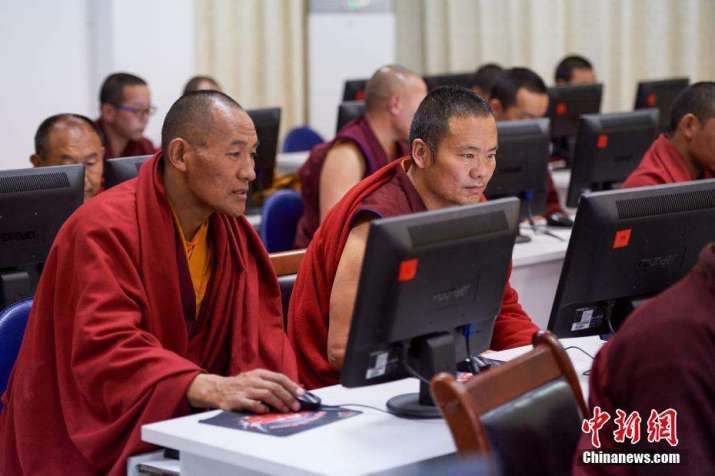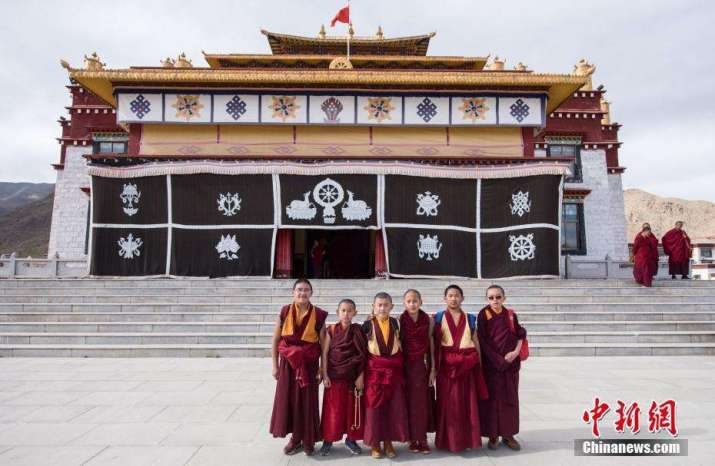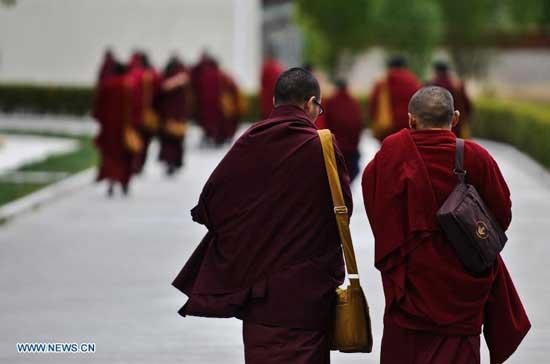
Culture
18:54, 14-Sep-2017
Tibet Buddhist Theological Institute to accommodate more students after expansion project
CGTN

With the completion of a construction project on Tuesday, the Tibet Buddhist Theological Institute is now able to accommodate over 1,000 students.
The institute is located in the township of Nyetang in Quxu County, which is administered by Lhasa, capital of the Tibet Autonomous Region. It was built in 2008 and began to receive students in 2011.

The students, who come from various temples in Tibet, study not only Buddhism but also law and culture. /Photo via chinatibetnews.com
The students, who come from various temples in Tibet, study not only Buddhism but also law and culture. /Photo via chinatibetnews.com
The first class of 150 monks, including Living Buddhas and monks from various Tibetan Buddhist sects, graduated from the school in 2013.
The latest project – the third phase of the school's construction, covers some 43,550 square meters and includes classrooms, an auditorium, library and dormitories.

Young monastic students at the Tibet Buddhist Theological Institute near Lhasa. /Photo via chinatibetnews.com
Young monastic students at the Tibet Buddhist Theological Institute near Lhasa. /Photo via chinatibetnews.com
Zhukang Tubdankezhub, president of the institute, said it is the region's first high-level comprehensive Buddhist academy, which aims at cultivating monks and nuns with a love both for the country and religion.

Monks walk towards their dorms after class in the Tibet Buddhist Theological Institute in the township of Nyetang, Lhasa, capital of southwest China's Tibet Autonomous Region. /Xinhua Photo
Monks walk towards their dorms after class in the Tibet Buddhist Theological Institute in the township of Nyetang, Lhasa, capital of southwest China's Tibet Autonomous Region. /Xinhua Photo
Dainba Yarphel, 45, has been studying at the academy for one year, and will graduate in three years.
"The environment and conditions here are good. Besides Buddhist scriptures, we also study all kinds of courses including Tibetan language, Mandarin, history, computers and English," he said.
Source(s): Xinhua News Agency

SITEMAP
Copyright © 2018 CGTN. Beijing ICP prepared NO.16065310-3
Copyright © 2018 CGTN. Beijing ICP prepared NO.16065310-3